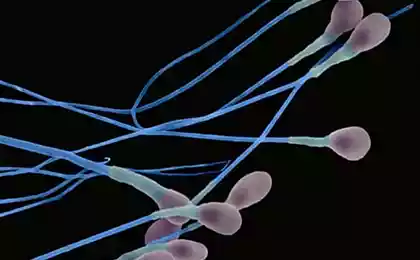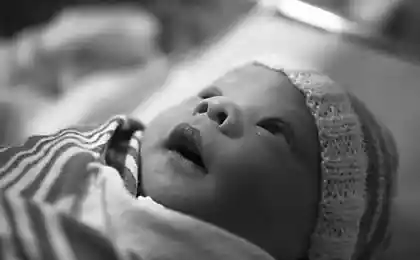586
ECO - friendly pregnancy
Sad, but true! Today many women face the problem of infertility for one reason or another. Someone refuses to dream of being a mother or fathered someone else's child, but most of them are included in the long and difficult struggle for the future of motherhood. Modern medicine offers a wide variety of infertility treatment. And not the last role among them is played by reproductive technologies in case of impossibility of pregnancy in a natural way, to do it artificially.
The most common reproductive technique is IVF (in vitro fertilization).
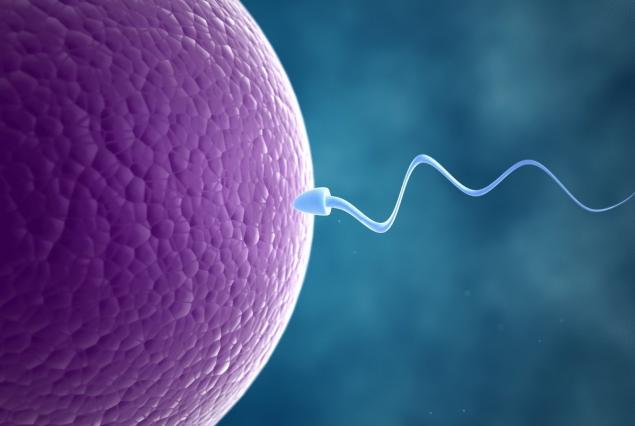
ECO. The method
Conceiving with in vitro fertilization happens outside the woman's body, as determined by the nature and in the laboratory. To do this the day before the procedure the woman is prescribed special hormonal therapy, which provokes the onset of the so-called superovulation, when matured not one but multiple eggs, then there is a collection of cells from a woman and her partner and medical embryology gets down to business. It connects the sperm head with the egg, and several days later when the fertilized egg begins to actively share, is its infusion into the body of a woman. If all goes well, the embryo is implanted in the uterine wall and begins to develop as a normal child, conceived naturally.
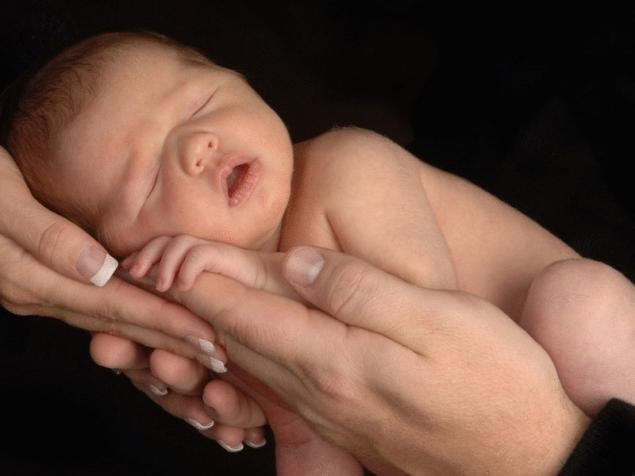
And yet the pregnancy was the result of artificial insemination, will be slightly different from the natural, because such women are at risk regarding the possibility of spontaneous abortion. The average miscarriage after IVF (except when the embryo is simply not stuck) it happens in ten to fifteen percent of all IVF-pregnancies.
What is the fundamental difference? About pregnancy with the help of ECO-technologies can talk about a few important characteristics:
A) for activities of a medical nature, which are carried out in order to not allow the mother's body to reject the embryo.
B) concerning the well-being and feelings of the expectant mother.
We'll look at both of these important aspects. Peculiarities of ECO-friendly pregnancy in the early srakocic know, the first days and weeks of pregnancy (regardless of how it occurred) the most critical and the most "dangerous" because any fluctuation (especially hormonal) in the female body can disrupt the balance necessary for successful implantation and embryo development. And the pregnancy that resulted from an artificial infusion of the embryo in the womb, are particularly vulnerable in this regard. There are several reasons:
1) Infertile women. That pregnancy was impossible by natural means or otherwise due to the state of the female body, therefore a high probability that he wants to reject.
2) Often for IVF women in the late reproductive period. It is also characterized by an increased risk for the embryo in the first fourteen weeks of pregnancy due to the General decrease in hormone levels.
3) Prior to IVF stimulation of ovulation. This process by its nature can not be called natural, so the possibility of hormonal failure in the body of the woman increases.
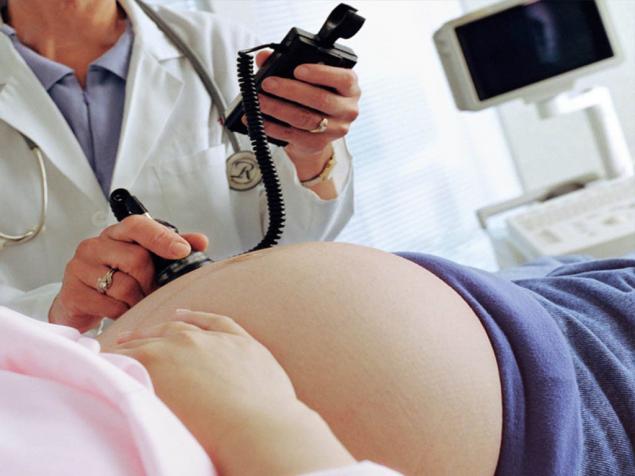
Therefore, doctors are taking a number of measures, a possible pre-emptive aborting of the fetus.
1) ultrasound monitoring of pregnancy. In the clinic, the woman undergoes an ultrasound procedure that the physician can monitor the position of the embryo in the uterus and its development.
2) Measurement of basal body temperature. Using this method it is possible to identify the amount of progesterone (the main hormone that is Pro-gestation).
3) Hormone therapy. After IVF is necessary to maintain the levels of estradiol and progesterone at a level sufficient to prevent the miscarriage.
Feeling pregnant after in vitro fertilization
After pregnancy state of the woman's body begins to change. All organs and systems adapt to the presence of a new organism. And not always this process goes on smoothly. Early toxemia of pregnancy, unfortunately, not uncommon. In women who have gone through IVF, it is especially pronounced and is characterized by:
1) mood swings, fatigue, sometimes even depression.
2) Nausea and frequent retching.
3) Swelling and pain in the mammary glands.
4) sleep disturbances (drowsiness or insomnia at night).
5) Problems with the digestive system.
6) Lowering blood pressure (associated with hormonal therapy).
7) Nagging, sometimes even pain in the lower abdomen (in this situation it is better to immediately consult a doctor).
But, as a rule, all these conditions are not too concerned about the expectant mother, where the pregnancy went to "sweat and blood", especially as soon after all the process settles, but this is already the second trimester of pregnancy, the unpleasant symptoms will go away. And the woman will be able to fully taste all the joy of expectation, the long-awaited baby.
Source
Source: /users/1081
The most common reproductive technique is IVF (in vitro fertilization).

ECO. The method
Conceiving with in vitro fertilization happens outside the woman's body, as determined by the nature and in the laboratory. To do this the day before the procedure the woman is prescribed special hormonal therapy, which provokes the onset of the so-called superovulation, when matured not one but multiple eggs, then there is a collection of cells from a woman and her partner and medical embryology gets down to business. It connects the sperm head with the egg, and several days later when the fertilized egg begins to actively share, is its infusion into the body of a woman. If all goes well, the embryo is implanted in the uterine wall and begins to develop as a normal child, conceived naturally.

And yet the pregnancy was the result of artificial insemination, will be slightly different from the natural, because such women are at risk regarding the possibility of spontaneous abortion. The average miscarriage after IVF (except when the embryo is simply not stuck) it happens in ten to fifteen percent of all IVF-pregnancies.
What is the fundamental difference? About pregnancy with the help of ECO-technologies can talk about a few important characteristics:
A) for activities of a medical nature, which are carried out in order to not allow the mother's body to reject the embryo.
B) concerning the well-being and feelings of the expectant mother.
We'll look at both of these important aspects. Peculiarities of ECO-friendly pregnancy in the early srakocic know, the first days and weeks of pregnancy (regardless of how it occurred) the most critical and the most "dangerous" because any fluctuation (especially hormonal) in the female body can disrupt the balance necessary for successful implantation and embryo development. And the pregnancy that resulted from an artificial infusion of the embryo in the womb, are particularly vulnerable in this regard. There are several reasons:
1) Infertile women. That pregnancy was impossible by natural means or otherwise due to the state of the female body, therefore a high probability that he wants to reject.
2) Often for IVF women in the late reproductive period. It is also characterized by an increased risk for the embryo in the first fourteen weeks of pregnancy due to the General decrease in hormone levels.
3) Prior to IVF stimulation of ovulation. This process by its nature can not be called natural, so the possibility of hormonal failure in the body of the woman increases.

Therefore, doctors are taking a number of measures, a possible pre-emptive aborting of the fetus.
1) ultrasound monitoring of pregnancy. In the clinic, the woman undergoes an ultrasound procedure that the physician can monitor the position of the embryo in the uterus and its development.
2) Measurement of basal body temperature. Using this method it is possible to identify the amount of progesterone (the main hormone that is Pro-gestation).
3) Hormone therapy. After IVF is necessary to maintain the levels of estradiol and progesterone at a level sufficient to prevent the miscarriage.
Feeling pregnant after in vitro fertilization
After pregnancy state of the woman's body begins to change. All organs and systems adapt to the presence of a new organism. And not always this process goes on smoothly. Early toxemia of pregnancy, unfortunately, not uncommon. In women who have gone through IVF, it is especially pronounced and is characterized by:
1) mood swings, fatigue, sometimes even depression.
2) Nausea and frequent retching.
3) Swelling and pain in the mammary glands.
4) sleep disturbances (drowsiness or insomnia at night).
5) Problems with the digestive system.
6) Lowering blood pressure (associated with hormonal therapy).
7) Nagging, sometimes even pain in the lower abdomen (in this situation it is better to immediately consult a doctor).
But, as a rule, all these conditions are not too concerned about the expectant mother, where the pregnancy went to "sweat and blood", especially as soon after all the process settles, but this is already the second trimester of pregnancy, the unpleasant symptoms will go away. And the woman will be able to fully taste all the joy of expectation, the long-awaited baby.
Source
Source: /users/1081
How to treat salt deposits in the joints folk ways
Entertainment drivers, extreme in Saudi Arabia video




